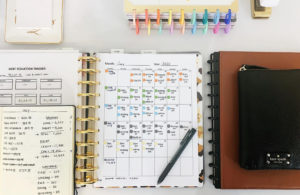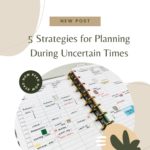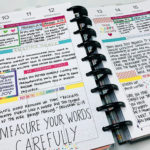Common Budgeting Mistakes You Should Avoid
When was the last time you tried to budget? For many people, it can seem a daunting task, and lots of savers give up on a budget quickly because they either cannot stick to it, or they feel that it doesn’t work for them.
This failure often leads to people thinking they are simply unable to save or that they are doing something wrong, but this is not the case, and they are likely falling victim to common budgeting mistakes.
If you are tired of your budgeting techniques failing, I have put together a list of the most common budgeting mistakes you should avoid:
Budgeting in your mind
This is one of the most common mistakes people make. Feeling overwhelmed by the time it takes to set a budget is often one of the main reasons people decide against it, instead opting to try to keep track of their expenses in their mind.
The greatest financial misstep you can make is to spend without a budget and will result in you spending more. Creating a written budget will ensure you do not forget about certain expenses or miscount anything.
Not tracking your spending
Keeping track of your regular bills is easy. We get a statement in the mail every single month that tells us exactly how much we owe and when it is due. The difficult part, however, is tracking the variable costs of expenses such as food, shopping, and entertainment.
If you are not keeping track of what you are spending, you will fall victim to overspending, making budgeting impossible. To keep track of these expenses, use the notes app on your phone or a paper expense tracker every time you purchase something.
Assigning expenses by paycheck
If you are paid weekly or biweekly, you may budget by assigning particular expenses to each paycheck. This budgeting pitfall might mean that the week when you pay your mortgage or rent, money is tight, especially if most of your bills are due at the same time.
Instead of allocating an entire paycheck to your largest expense and leaving no money for other spending categories, you should set aside money from each paycheck to cover multiple expense categories.

Not budgeting as a team
One of the biggest budgeting mistakes couples make is spending in a silo. For example, if you and your spouse both spend in the same category at the same time of the month, your combined spending might exceed the total you had allocated for that month.
Another example might be failing to consider the unique financial needs and wants of your spouse, such as a desire to pay down debt or save for a vacation, and this practice can lead both of you to abandon budgeting altogether.
Making sure you are both on the same page is essential to helping you to keep on track and saving.
Not saving for an emergency fund
An emergency fund is a pool of money that you use to pay for unplanned expenses such as medical bills or sudden home repairs. Ideally, this fund should amount to around three to six months of your regular living expenses.
If you maintain an emergency fund, you will be able to draw from it whenever an emergency arises; however, you should remember to replenish it as soon as possible.
Assuming your monthly bills are set
Another very common budgeting mistake is viewing fixed expenses as non-negotiable budget items. For example, your cable or cell phone bill may be the same amount each month, but that does not mean the values are the same.
Seeing these kinds of expenses as fixed will often mean you miss the opportunities to reduce some common costs.
Taking out all of the fun of your budget
Budgeting gets a bad name as most people believe that when they start, they have to take out all of the fun from their life. This is not true, though, and when you budget, you should plan for fun.
Whether it is catching a movie, seeing your favorite performer in concert, or even an occasional shopping spree, all of these are within bounds. You need to incorporate these expenses into your budget, and when you can still have fun, you will realize budgeting does not have to be unenjoyable. Equally, without factoring in these costs, you might end up spending more than you would have if you had never set up the restrictions!

Creating the exact same budget every single month
Budgeting is not rigid, and you should not consider every month to be exactly the same as the previous. You need to look at each one differently and factoring in key events such as birthdays, anniversaries, and other events.
Relying on credit cards
If you are running out of money every single paycheck because you are going over budget and then having to turn to your credit card to get by, you are making a mistake. Keeping track of your expenses will help you to understand how much you are spending in your budget, and if they are higher than your income, your credit card is not the solution.
Instead, you should take a deep dive into your budget. This will help you to highlight areas where you can either cut your expenses or increase your income.








